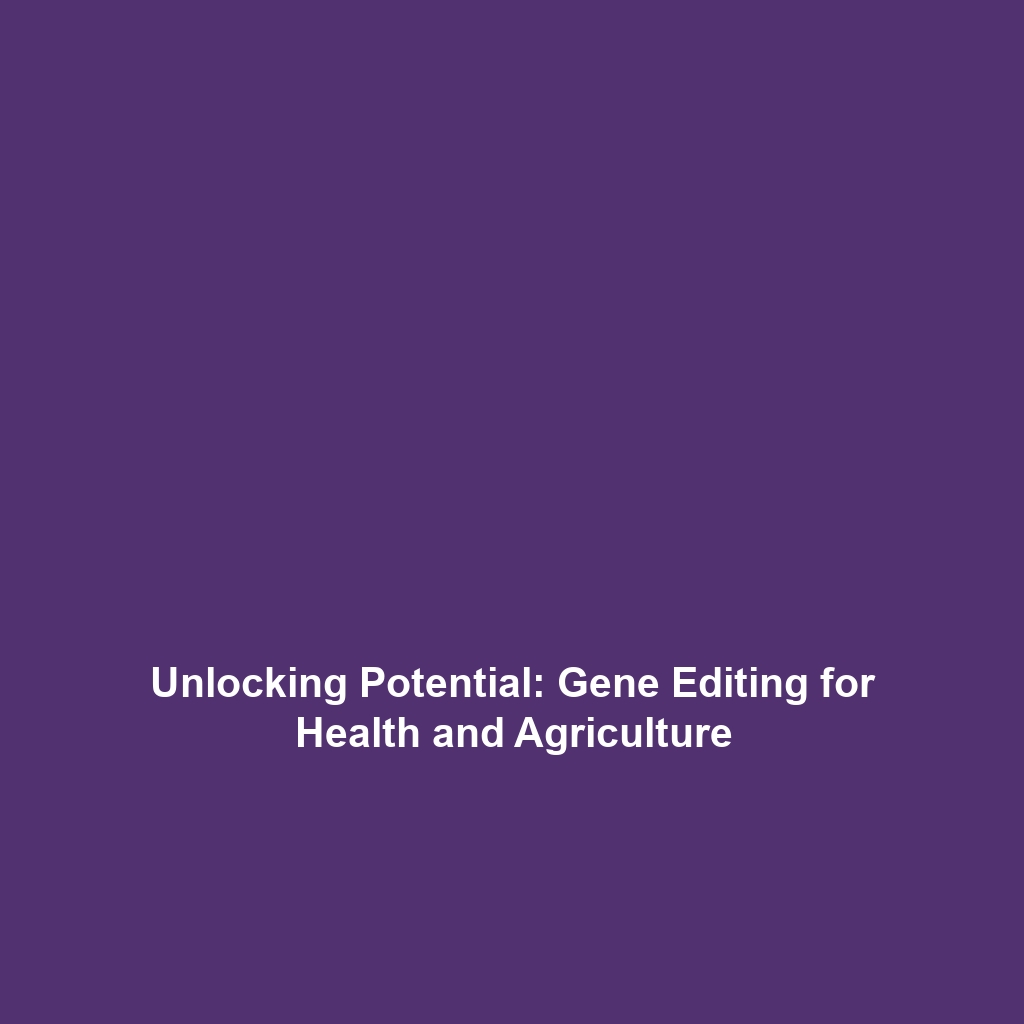Potential Applications: From Correcting Genetic Disorders to Agricultural Enhancements and Research into Gene Function
Introduction
The Human Genome Project (HGP) has revolutionized our understanding of genetics and biology, mapping the complete set of human DNA. This monumental achievement has paved the way for remarkable potential applications ranging from correcting genetic disorders to enhancing agricultural productivity and deepening our research into gene function. The significance of these applications lies in their ability to transform healthcare, agriculture, and biological research, ultimately improving lives and bolstering food security worldwide.
Key Concepts
Understanding the Human Genome Project
The HGP successfully sequenced the human genome, providing a blueprint for understanding genetic makeup. The major concepts related to the potential applications include:
- Genetic Disorders: The ability to identify and potentially correct mutations that lead to inherited diseases.
- Agricultural Enhancements: Utilization of genetic information to develop crops with improved traits, such as drought resistance or higher nutritional value.
- Gene Function Research: Investigating how specific genes control biological processes, which can lead to groundbreaking discoveries in medicine and biology.
Applications and Real-World Uses
Various real-world applications showcase how the potential of the Human Genome Project is being harnessed:
- Genetic Disorder Correction: Techniques such as CRISPR-Cas9 are being utilized to edit genes responsible for conditions like cystic fibrosis and sickle cell anemia.
- Agricultural Innovations: Genetically modified organisms (GMOs) are cultivated to withstand pests and extreme weather, drastically reducing reliance on chemical pesticides.
- Gene Function Exploration: The use of genome editing to understand gene interactions, leading to improved treatment strategies for various diseases.
Current Challenges
Despite the advancements, several challenges exist in studying and applying the potential applications derived from the Human Genome Project:
- Ethical Issues: Concerns surrounding genetic modifications and the consequences on biodiversity.
- Technical Limitations: Current technology may not accurately predict how genetic changes affect phenotypes.
- Access and Equity: Disparities in access to genomic technologies may limit the benefits to certain populations.
Future Research and Innovations
Looking ahead, the future of research related to the Human Genome Project holds promise for even more transformative innovations:
- Next-Generation Sequencing: Further refinement in sequencing technologies will enhance precision in gene editing.
- Personalized Medicine: Advances in genomics will allow for treatments tailored to individual genetic profiles, increasing efficacy.
- Sustainable Agriculture: New gene-editing techniques may lead to a new era of crop resilience against climate change.
Conclusion
The potential applications derived from the Human Genome Project are vast and varied, impacting fields from medical genetics to agricultural science. As we continue to explore these avenues, it is essential to address ethical implications and technological challenges to maximize their benefits. For further reading on related topics, visit our sections on Genetics in Medicine and Sustainable Agriculture Innovations.

Leave a Reply